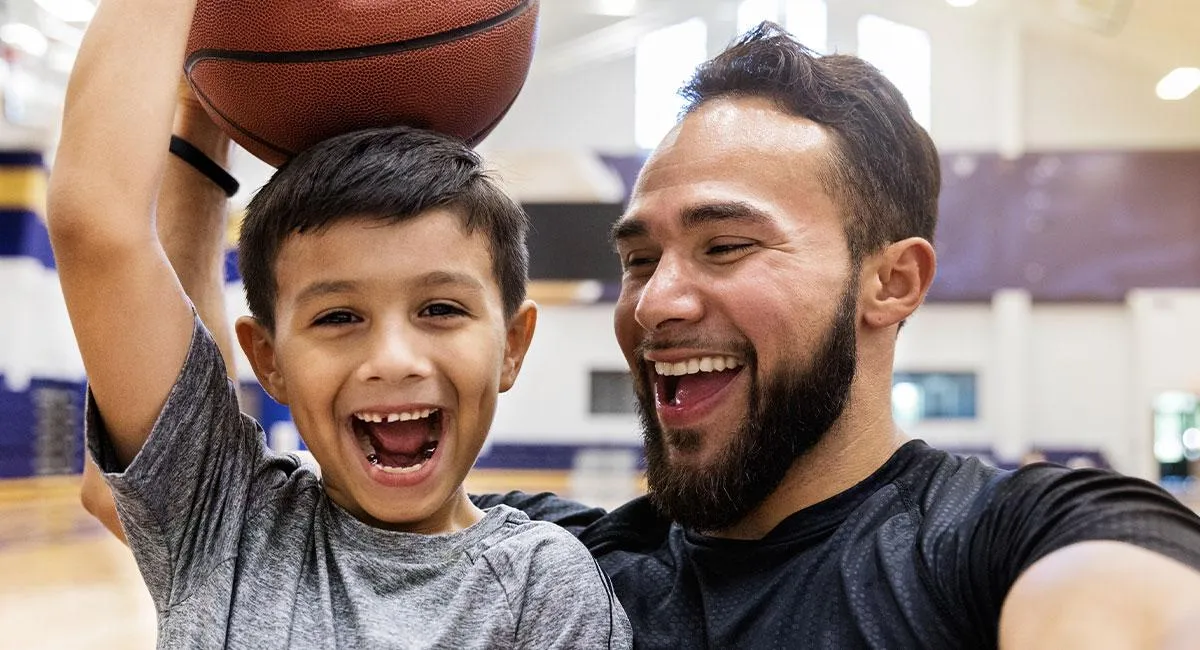
Is there a connection between mental health and physical activity in kids?
We often hear about the physical benefits of exercise, but did you know that getting active is just as crucial for mental health? Let's explore why and how you help your child find joy in movement.
Physical activity does wonders for the body, but its impact on the mind is equally impressive. When kids engage in regular physical activity, their brains release chemicals called endorphins. These are often referred to as "feel-good" hormones because they help reduce stress and anxiety, boost mood, and enhance overall well-being.
Exercise also improves focus and concentration, which can be particularly beneficial for school-aged children. It helps them manage stress better, improves sleep quality, and even boosts self-esteem by providing a sense of accomplishment and confidence.
Finding Joy in Movement
The key to reaping these mental health benefits is to ensure that physical activity is enjoyable for your child. Here are some tips to help your child find activities they love:
Explore Together: Make it a family affair! Go for walks or hikes together and explore new trails or parks. This not only encourages physical activity but also strengthens family bonds.
Dance It Out: Turn up the music at home and have a dance party. Dancing is a fun way to get moving and can be done indoors or outdoors.
Try New Activities: Encourage your child to try different sports or activities like swimming, martial arts, or gymnastics. Let them discover what they enjoy most.
Play Outside: Encourage outdoor play with friends or siblings. Games like tag, frisbee, or soccer are great ways to stay active while having fun.
Lead by Example: Be a role model by staying active yourself. Your enthusiasm for movement can inspire your child to join in.
Encouragement and Support
Remember, every child is different, so it's important to let them explore various activities at their own pace. Encourage them without pressure, and celebrate their efforts and achievements, no matter how small.
By helping your child find enjoyable forms of movement, you're not only supporting their physical health but also nurturing their mental well-being. So let's get moving and make physical activity a fun part of everyday life!
What are some of your family's favorite ways to stay active?
Jake’s Story
Mariah noticed her 12-year-old son, Jake, becoming increasingly withdrawn and moody. He spent most of his time glued to his phone or playing video games, showing little interest in physical activities. Concerned about Jake's mental health, Mariah decided to take action.
She started by having an open conversation with Jake about his feelings and interests. Mariah discovered that Jake felt self-conscious about his lack of athletic ability and feared being teased by his peers. Understanding his concerns, she devised a plan to help Jake become more active while building his confidence.
Mariah began by suggesting they take short evening walks together after dinner. During these walks, she encouraged Jake to share his thoughts and feelings, creating a safe space for him to open up. As they continued this routine, Jake's mood gradually improved, and he started looking forward to their nightly strolls.
Noticing Jake's interest in technology, Mariah introduced him to active video games that required physical movement. They started playing dance games together, laughing at their clumsy attempts and celebrating small improvements. This approach allowed Jake to combine his love for gaming with physical activity, making exercise feel more enjoyable and less intimidating.
As Jake's confidence grew, Mariah suggested trying new activities together. They explored geocaching, turning their walks into exciting treasure hunts using GPS technology. This blend of adventure and exercise appealed to Jake's curiosity and made being outdoors more engaging.
Over time, Jake's energy levels increased, and his mood stabilized. He began sleeping better and showed improved focus at school. Encouraged by these positive changes, Jake expressed interest in joining a local youth fitness class. Mariah supported his decision, emphasizing the importance of having fun rather than competing with others.
The bond between Mariah and Jake strengthened through their shared activities. Jake's mental health improved significantly, and he developed a more positive attitude towards physical exercise. By understanding her son's needs and finding creative ways to incorporate movement into his life, Mariah successfully helped Jake overcome his initial resistance to exercise and discover the joy of an active lifestyle.
Better relationship with your body = Better mental health = Healthy Growth
The way your child thinks and feels about their body is powerful.
At EndoMD Health, we are the first online program in the nation that combines medical growth management with nutritional and emotional support.
These key ingredients help you and your child identify the root cause of their anxieties.
Coaching helps them understand and change these thoughts, leading to healthier habits and a healthier life.
👉 Join our signature Healthy Growth Membership to help your child build healthy habits to last them a lifetime!

